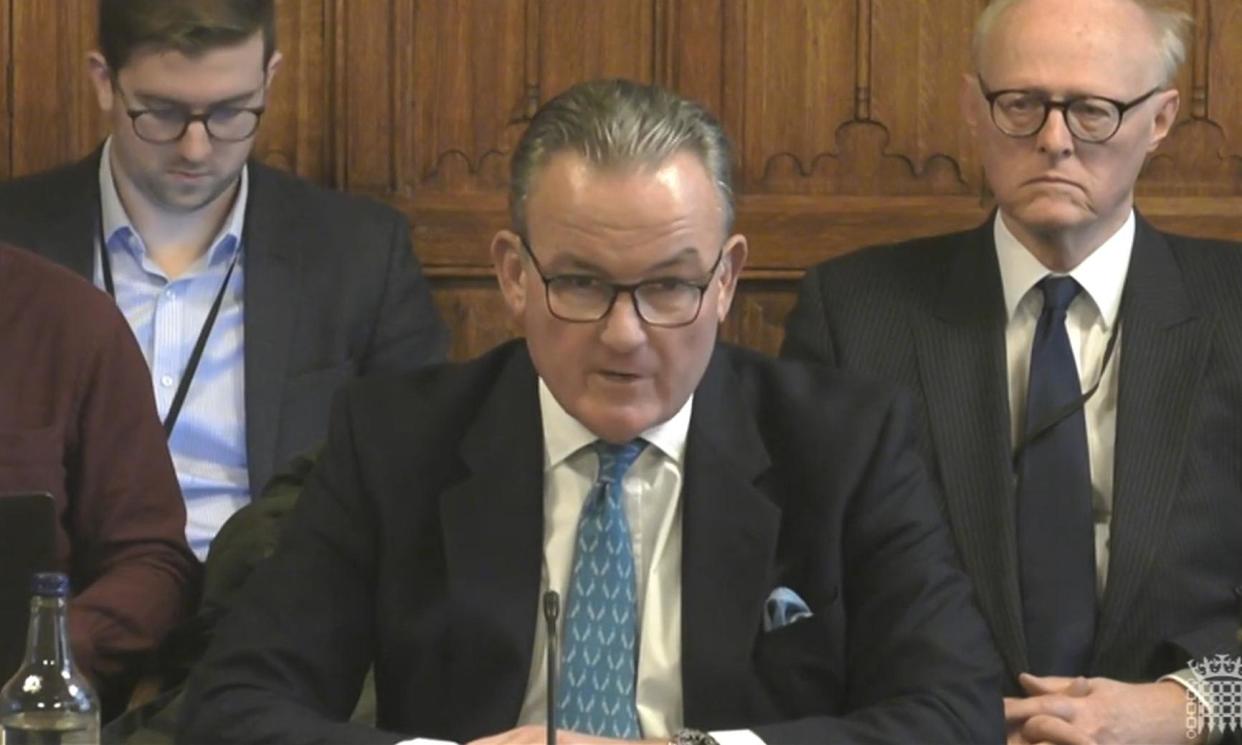Home Office tried to cover up my critical reports, says sacked border chief

The UK’s sacked chief borders inspector has said the Home Office routinely used a factchecking process to try to “cover up” criticisms in his inspection reports.
David Neal was dismissed as the independent chief inspector of borders and immigration last month after leaking information about apparent security failures at London City airport. He also criticised the department for failing to publish 15 of his inspection reports while he was in post.
In an interview with BBC Radio 4’s Today programme on Wednesday, he said civil servants had tried to use the factual accuracy process to censor his reports.
He said: “Every time that we submit evidence to the Home Office, there’s a factual accuracy process … quite often the civil service will really push back hard and will try and shape what we’re saying, will try and shape what I’m saying and try and wrap it up and present it to the home secretary in a more favourable way for them, so in effect trying to cover up what’s gone on.”
Neal said that if his team had agreed to the changes suggested, many serious issues would not have been raised in his reports.
“If we listened to every single case that the civil servants put forward, we’d have failed to expose the small boats security issues at the Channel, we’d have failed to expose what was going on at [the asylum processing centre] Manston. So actually, it’s really important in my book that the independent chief inspector can communicate directly with ministers without it being polished by the civil service.”
Neal was speaking about his report on security issues at London City airport, which found that “high-risk” private jets were not being checked as they arrived in the country. He said that with no replacement chief inspector in post, there was nobody to scrutinise whether similar issues might be happening at other airports.
“If I was still in post, or if my successor had been appointed, then I would have expected to commence an inspection much more broadly into general aviation because clearly there are problems here,” he said. “We’d want to do something right across the country, I suspect, but there is no chief inspector in post, there is no one that can independently do this now.”
The Home Office says the data used in the airport inspection was wrong. The Border Force director general, Phil Douglas, said: “As I previously explained to Mr Neal, some of the information in this report is factually inaccurate. Border security checks were carried out on all general aviation arrivals at London City airport.”
Neal said his team had seen “really bad data” all the time from the Home Office “and if this is another example of bad data, then I’m not entirely sure how they’re supposed to protect the border”.
Following his criticisms last month, the Home Office rushed out 13 of his inspectorate’s reports in one day. One of them revealed that the department had launched an inquiry after staff made unaccompanied asylum-seeking children play a game in which they had to guess who would be the next one to be placed in foster care.
Neal said he wondered if the Home Office would have trouble finding someone to replace him. “It’s been a real struggle to get the message across to ministers. So then why would someone want to put themselves at risk either to become some form of patsy for the Home Office, or end up being sacked for doing what they think is right?”
Douglas said: “We will never compromise on border security and carry out robust security checks on those arriving into the UK, including both scheduled and notified general aviation flights.”
Neal’s comments come as the number of migrants arriving in the UK so far in 2024 after crossing the Channel has reached a new record high for the first three months of a calendar year.
According to provisional Home Office figures, 338 people arrived in seven boats on Tuesday, taking the total for the year to date to 4,644.
This exceeds the previous record high figure of 4,548 for January to March 2022 and had already surpassed the 3,793 arrivals in the first quarter of last year.
The number of crossings recorded so far this year is 23% higher than the total at this point in 2023 (3,770) and 12% higher than the same time in 2022 (4,162), according to PA news agency analysis of government data.
Last year a total of 29,437 migrants arrived in the UK after crossing the Channel, down 36% on a record 45,774 arrivals in 2022.


